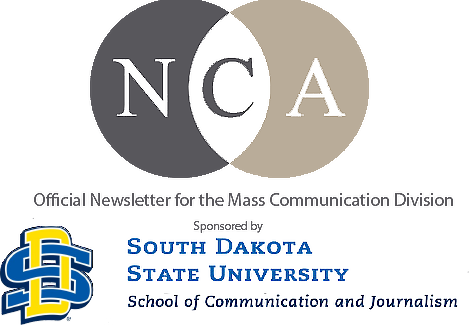
Volume: 28 Number: 1
Published three times annually by the Mass Communication Division of NCA.
Publications/Web Editor – Rocky Dailey, South Dakota State University
Welcome from the Chair – Editor’s Note – Announcements – Gatekeeper Scholar Chat – Division Officers – Gatekeeper Archives
 The year is 2009. On the heels of one of the worst economic downturns in recent memory, the academic job market has reached an all-time low in terms of position availability, and I’m about to graduate. It’s Fall, and the orange and yellow hues of Sycamore leaves decorate the historic University of Illinois campus, but I barely notice. Feeling panicked, I rush into meet with my doctoral advisor and blurt out: “My data analyses produced virtually no statistically significant findings, so my dissertation is a disaster, and I’m never going to get a job.” Her calm response: “Sometimes the lack of significant findings is the story.”
The year is 2009. On the heels of one of the worst economic downturns in recent memory, the academic job market has reached an all-time low in terms of position availability, and I’m about to graduate. It’s Fall, and the orange and yellow hues of Sycamore leaves decorate the historic University of Illinois campus, but I barely notice. Feeling panicked, I rush into meet with my doctoral advisor and blurt out: “My data analyses produced virtually no statistically significant findings, so my dissertation is a disaster, and I’m never going to get a job.” Her calm response: “Sometimes the lack of significant findings is the story.”
In that moment, she gave me the freedom to fail. Failure, or the perception of failure, is often an opportunity to look at a situation from a different perspective, or a time to improve an approach that may need thoughtful revision. Failure by itself can be freeing because it provides space to pursue a different path. That “failed” dissertation ended up becoming a publication that is one of the most read articles of all time in Communication Monographs.
This year, as we approach the deadline for convention submissions, let’s remember the theme for the 109th conference: Freedom. Let’s give each other and ourselves the freedom to fail, to experiment, to engage in ways that challenge our division, our discipline, and our traditions. With that freedom comes the possibility that we outperform our wildest expectations or, perhaps, forge new paths that we never previously thought we should consider.
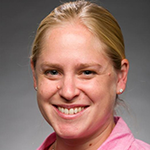
Chair
Veronica Hefner
St. Mary’s College – California
School of Liberal Arts – Communication
105J Sichel, Moraga, CA 94575
vh10@stmarys-ca.edu
You may have noticed (and I would not be doing my job if you didn’t) a redesign of the division website and Gatekeeper newsletter. This was a goal of mine since taking over the Publications and Web Editor position in 2022. The new site is more mobile-friendly and the back-end content management system will make it easier to update both the content and the themes going forward. All of the previous web content still exists and you can easily access past issues of The Gatekeeper. Please let me know if you have any suggestions or find any errors as you explore.
Sincerely,
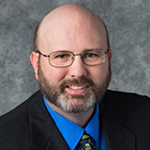
Publications & Web Editor
Rocky Dailey
South Dakota State University
School of Communication and Journalism
Yeager Hall 211, Box 2235
Brookings, SD 57007
rocky.dailey@sdstate.edu
The Mass Communication Division seeks submissions that explore the 2023 convention theme, Freedom. These submissions can be in the form of papers, paper sessions, and panel discussions. The convention theme, Freedom, asks us to think about ways in which our research can show the experience of people through their collective labor in projects. It also asks Communication scholars to demonstrate scholarly and pedagogical practices that honor marginalized communities. Finally, this year’s theme encourages researchers to explore their local communities and how local voices and knowledge can be shared through various Communication practices.
SUBMISSION DEADLINE: Wednesday, March 29, 2023 at 11:59 pm Pacific Time.
If you submit your work, we strongly encourage you to review for our division. Sign up to review by clicking here.
All submissions should be made via NCA Convention Central. Emailed or mailed submissions will not be accepted. Please review the NCA Professional Standards for Convention Participants prior to registering your submission. We request that all Mass Communication Division participants adhere to the standards.
The Mass Communication Division is now accepting nominations for teaching, service, and dissertation awards. Award descriptions and nominating instructions are below.
Teaching Award
The MCD Teaching Award is designed to recognize excellence in teaching, using the term “teacher” in a broad sense. In order to be considered, the nominee must be a member of NCA and the MCD, must have taught for over ten years (post-graduate), and must have evidence of outstanding teaching, which can be demonstrated through evaluations and testimonials or formal recognition for teaching excellence by the nominee’s department, unit, college/university, or other group or association. This includes, but is not limited to awards, merit evaluations, student recognition, etc. Self-nomination is encouraged in addition to nominations by others. The nomination packet should include the Nomination Form, a list of three references with contact information (note: names and contact information are required, reference letters are optional), and the nominee’s curriculum vitae (CV).
Service Award
The MCD Service Award is designed to recognize excellence in service, using the term “service” in a broad sense. In order to be considered, the nominee must be a member of NCA and the MCD, must have served the NCA and MCD in a number of capacities, and must have evidence of exemplary service to several of the following: NCA, MCD, their profession, their community, their department, and/or their college/university. Self-nomination is encouraged in addition to nominations by others. The nomination packet should include the Nomination Form, a list of three references with contact information (note: names and contact information are required, reference letters are optional), and the nominee’s curriculum vitae (CV).
To be considered for the teaching or service awards, complete the following by Sunday, August 13th, 2023:
Dissertation Award
The MCD Dissertation Award is designed to recognize the outstanding doctoral dissertation in the field of Mass Communication. Nominations should reflect the division’s focus, which seeks to enhance understanding of the structure, content, function, interpretation, and effects of our complex media environment. To be eligible for the award, the dissertation must have been officially completed (i.e., defended and filed) between July 1, 2022 and June 30, 2023.
Nominations should be made by the dissertation advisor or a member of the Mass Communication Division of NCA. The nomination packet should include a nomination letter speaking to the intellectual and academic merit of the dissertation, a 500-word (maximum) abstract of the dissertation, the dissertation table of contents, and one dissertation chapter considered to be representative of the manuscript. (Complete dissertations will not be accepted.)
To be considered for the dissertation award, complete the following by Sunday, August 13th, 2023:
Please consider signing up to review conference paper submissions today at the link below. The survey takes less than 5 minutes. If you are unsure whether you have signed up to review for 2023, go ahead and fill out the form again!
On the survey, please select ALL the theoretical, conceptual, contextual, and methodological areas you believe you could review, not just those that you specialize in. This will help us match reviewers to submissions.
Sign up to be an NCA Mass Comm Division conference reviewer through our brief Google form below, and we’ll send you a handful of papers/panels to review in the spring of 2023. As a reviewer, you can help fellow scholars by giving your feedback and be the first to learn about new research.
NCA Mass Communication Division Conference Reviewer Sign-Up
If you have any questions, please reach out to Hilary Gamble, Second Vice-Chair of the Research Committee, at hgamble@aum.edu
Southern Illinois University Carbondale is currently accepting applications for two faculty positions to begin Fall 2023:
Assistant Professor, PR and Leadership and open rank, asst., assoc., or full in Communication Pedagogy (Intercultural Comm and Pedagogy area), which will also serve as Introductory Course Director.
The University of Nebraska at Omaha (UNO) School of Communication seeks an outstanding Public Relations and Advertising Instructor to advance the School’s commitment in preparing students for careers in Public Relations and Advertising. A Master’s degree in Communication or related area is required. The appointment begins August 14, 2023. This faculty member may teach undergraduate courses such as PR and Advertising Design, Principles of PR, Principles of Creative Advertising, Media Writing, and Strategic Writing for Advertising and PR, as well as classes that reflect the applicant’s interests. We are also seeking a new colleague to serve as faculty advisor for the Public Relations Student Society of America (PRSSA) nationally recognized chapter. Instructors teach four courses per semester with expectations for department, college, university, and community service.
The Department of Communication at Appalachian State University is seeking a full-time Lecturer in Electronic Media/Broadcasting, with a start date of August 21, 2023. Qualifications include Bachelor’s degree in mass communication, communication or related field, and at least 10 years of TV or broadcasting experience; or a Master’s degree in mass communication, communication or related field, and at least five years of TV or broadcasting experience; and the ability to teach classes in electronic media broadcasting and production. Areas of interest include Experience in video production, TV studio production, and teaching university students; and the integration of curriculum with programs that would air on AppTV, the department’s HD TV channel. Responsibilities include teaching four classes per semester, including TV Studio Production, Broadcast Performance Techniques, and other classes based on departmental needs; and participating in departmental governance and service.
George Fox University announces a tenure-track position in Communication with a specialization in Public Relations and/or Strategic Communication to begin August 15, 2023. The successful candidate will teach a full load of 24 units and maintain an active program of scholarship and service to the institution.
Zhejiang University (ZJU) is seeking a tenure and tenure-track open-rank faculty positions in Communication and Journalism. They are are interested in candidates who have expertise in one or more of the following areas: Journalism, Communication, Radio and Television Art, Film Studies, Advertising, Public Relations, Aesthetics, Cultural Studies, Data Science, Linguistics, Teaching Chinese as a Foreign Language, and other related interdisciplinary studies.
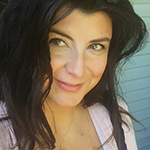
Dr. Serena Miller is an Associate Professor of Journalism Innovations, the Co-Director of Graduate Studies in Michigan State University’s School of Journalism, and Associated Editor for Journalism Studies. Miller recently stepped down from chairing the Information & Media Ph.D. program for the School. The Association in Education in Journalism & Mass Communication elected her to the Standing Committee on Research to serve a three-year term. MSU faculty also elected her to serve on the University Committee on Faculty Tenure and the University Military Education Advisory committee.
Miller received her Ph.D. from Michigan State University’s Media and Information Program, her M.S. in Journalism from the University of Nebraska Lincoln, and her B.A. in Communication Studies & Theatre from South Dakota State University. Prior to joining MSU, she was an assistant professor at Arizona State University where she led the digital media and Ph.D. programs for several years and she also worked as an instructor at Bloomsburg University prior to attending her Ph.D. program.
Before becoming a teacher-scholar, Miller served in the mechanic’s platoon in the U.S. Army, raised crops and cattle on a 1,000-acre farm in South Dakota, and worked as a television journalist in the U.S. She is not only a traditional academic scholar but a creative one as well. She recently won two awards for her documentary and photographic work on documenting and preserving food cultures of Michigan-area Native American populations.
GK: I see you served in the U.S. Army, has that experience been helpful in your academic career?
SM: I cherished my time in the mechanics platoon in the U.S. Army for several reasons. The military was a path for me to engage with a world and people beyond the borders of a small rural town. I also developed some of the most authentic, deep friendships with the people I served with in the military. Military members believe deeply in hard work, and they are devoted to a higher purpose. I have witnessed veteran’s sacrifices and the toll that those sacrifices have on the people who have served including people I love. I try to support veterans whenever possible in academia. I have, for example, served on Michigan State University’s Military Advisory Committee, and I researched how journalists from the smaller news media report on the military.
GK: You have done some documentary work as part of your creative activity. How do you balance your time between creative activity and more traditional scholarly work? Does one appeal more to you than another?
SM: Both approaches tap into different parts of my creative abilities. In traditional research, I enjoy mapping complexities and categorizing them into accessible social science concepts. In creative scholarship, I enjoy editing aesthetically beautiful multimedia stories that capture the essence of people who share their stories with me. It is, however, challenging for me to straddle both the creative and traditional approaches at the same time. And thus, I tend to lean toward one approach at a time. I recently used my knowledge of these two distinct social systems to help creative scholars and academic leadership evaluating them for career advancement. I published a series of studies on tenure and promotion standards for engaged and creative scholars in academia, and I am most proud of a proposed Creative Scholarship Pathways Framework that puts forth suggested tenure and promotion standards for creative academics. The manuscript was accepted in August and will be published in the Review of Communication.
GK: Congratulations! Your work also includes looking at the identity of the journalism discipline, what discoveries have you found regarding the personality traits of journalists?
SM: My interest in this area stems from my observation that journalism student majors interested in non-reporting paths are often treated differently in academia. Journalism majors also work as product managers, programmers, storytellers, editors, designers, designers, sound editors, photographers, and videographers within the field of journalism. In 2018, I conducted a study comparing broadcast and print journalism students finding they differed in their degree motivations and personality traits. Results showed broadcast journalism students perceived themselves as more extreme on many measures including extraversion, conscientiousness, and certain life values. Broadcast students were also more likely to choose journalism as a degree for social prestige, storytelling, interviewing, and photography reasons, whereas print students were more likely to choose writing as their primary motivation. Today, I am researching the storytelling construct. Storytellers seek to encourage people to reexamine their own lives with an ideal outcome of seeding empathy and human connection through their work. The storytelling role of journalists, however, has been argued to not be a role of journalism because it is assumed to undermine news reporters’ practices associated with the pursuit of truth and fact-based information.
GK: Trust continues to be an issue between the public and the news media, and some programs have seen that result in less journalism majors. What do you think we can do as educators and scholars to address these issues?
SM: We have lost a social consensus of what is true. Journalists can no longer occupy the middle ground. They can no longer be passive conduits between sources and audiences, they must adopt a more engaged and interpretative approach when reporting the news. The engaged journalism approach suggests that journalists should learn how to listen; develop a trauma-literacy; seek to accurately represent people cited in the news; provide historical and cultural contexts; and attend community events. Thus, my assumption based on my reading of existing research is they need to adopt more of an audience-frame if they want to regain trust.

Chair
Veronica Hefner
St. Mary’s College – California
School of Liberal Arts – Communication
105J Sichel, Moraga, CA 94575
vh10@stmarys-ca.edu

Vice-Chair
Matt Lapierre
University of Arizona
Department of Communication
1103 East University Blvd. Tucson, AZ 85721
mlapierre@arizona.edu
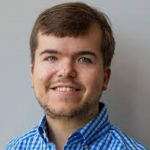
Vice Chair-Elect / Ad-Hoc Awards
Colin Kearney
Christopher Newport University
One Avenue of the Arts
Newport News, VA 23606
colin.kearney@cnu.edu
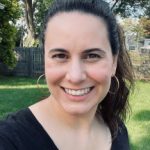
Past Chair
Valerie Kretz
St. Norbert College
Communication and Media Studies
100 Grant Street, Boyle Hall 352
De Pere, WI 54115
valerie.kretz@snc.edu
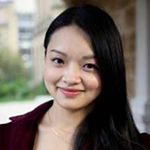
Secretary
Ellie Yang
Northwestern Missouri State University
800 University Drive
Maryville, MO 64468
eyang@nwmissouri.edu
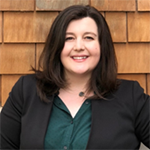
Secretary-Elect
Sofia Rhea
University of California, Davis
Department of Communication
Kerr Hall 154, Davis, CA 95616
vrhea@ucdavis.edu
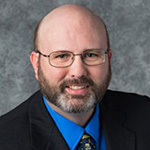
Publications & Web Editor
Rocky Dailey
South Dakota State University
School of Communication and Journalism
Yeager Hall 211, Box 2235
Brookings, SD 57007
rocky.dailey@sdstate.edu
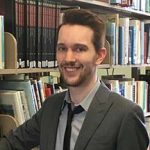
Graduate Student Rep.
John J. Brook
Northwestern University
School of Communication
710 N. Lakeshore Drive
Chicago, IL 60611
johnjbrooks@u.northwestern.edu
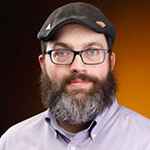
Ad-Hoc Appointment – Group Parliamentarian
Shane Tilton
Ohio Northern University
Department of Communication
Freed PAC 137
Ada, OH 45810
s-tilton@onu.edu
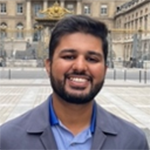
Graduate Student Rep. – Elect
Muhammad Rasul
University of California, Davis
Department of Communication
Kerr Hall 171, Davis, CA 95616
merasul@ucdavis.edu
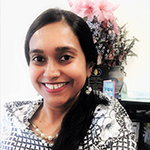
IDEA Representative
Sumana Chattopadhyay
Marquette University
Diederich Collge of Communication
Johnson Hall 404F
Milwaukee, WI 53233
sumana.chattopadhyay@marquette.edu
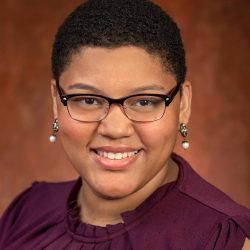
Committee Chair
Arienne Ferchaud
Florida State University
College of Communication & Information
4100 University Center, Building C
Talahassee, FL 32306
aferchaud@fsu.edu

First Vice-Chair
David Stamps
Bentley University
175 Forest Street
Waltham, MA 02452
dstamps@bentley.edu
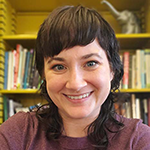
Second Vice-Chair
Hilary Gamble
Auburn University – Montgomery
Communication & Theatre
7430 East Drive
Montgomery, AL 36117
hgamable@aum.edu
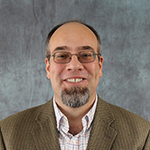
Second Vice-Chair – Elect
Laramie Taylor
University of California-Davis
Communication Department
7430 East Drive
396 Ker Hall, Davis, CA 95616
lartaylor@ucdavis.edu

Committee Chair
Benjamin K. Smith
California State University – East Bay
Department of Communications
3011 Meiklejohn Hall
Hayward, CA 94542
benjamin.smith@csueastbay.edu
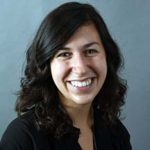
Vice Chair
Cassandra Alexopoulos
University of Massachusett- Boston
100 William T. Morrissey Blvd.
Boston, MA 02125
c.alexopoulos@umb.edu
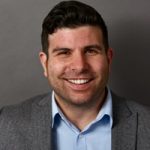
Vice Chair-Elect
Brandon Miller
Department of Communication
University of Massachusetts Boston
Wheatley Hall, Floor 6, Room 103
Boston, MA 02125
Brandon.Miller@umb.edu
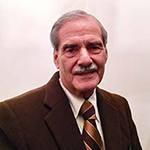
Legislative Assembly
Stan Tickton
Norfolk State University
Mass Communication/Journalism
700 Park Ave., Unit 3249
Norfolk, Virginia 23504
sdtickton@hotmail.com
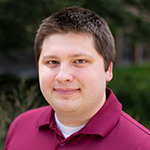
Nominating Committee
Joshua Baldwin
University of Georgia
Department of Advertising & Public Relations
Grady College of Journalism & Mass Communication
120 Hooper Street
Athens, GA 30602
joshua.baldwin@uga.edu